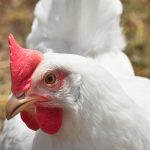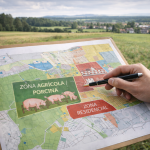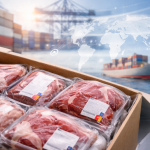Despite a difficult scenario, Rabobank’s Poultry Quarterly Q2 2023 Report highlights that demand for poultry meat remains strong. It expects world trade to stay strong and soybean and corn prices to drop. As for Avian influenza, it will be a wild card, with the potential to impact trade and drive prices up.
Rabobank’s 2023 second quarterly report on the global poultry sector states that the market remains strong and overall optimistic. Demand for poultry remains strong around the world, despite the fact that ongoing high prices at a time of weaker economic conditions are leading to some demand erosion in markets in Africa and Asia, where consumers are returning to cheaper, traditional plant-based protein sources.
In general, major importing countries and regions are operating under relatively tight conditions, due to supply challenges and to Avian influenza.
Estimates for various markets
The outlook for global trade is positive, although there are differences between markets. For example, the United States, Brazil, India, and Indonesia operate under difficult conditions, while conditions in Mexico, Japan, China, the Philippines, Russia, and Saudi Arabia are strong.
Major importing countries and regions like Europe, Japan, China, Singapore, the Philippines, Saudi Arabia, and the Gulf States are operating under relatively tight conditions, due partly to supply challenges and partly to Avian influenza.
The report also expects soybean and corn prices to drop compared to first quarter 2023 levels, which will provide some relief for producers. But it will still mean historically high feed prices in most regions. Over the course of the year, they are expected to drop 5% to 10% compared to first quarter 2023 levels, mainly driven by expectations of good harvests in Brazil and eastern Europe and improving US forecasts.
Meanwhile, energy prices, which have been volatile, depend on developments in the Russia-Ukraine war and competition for liquefied natural gas in global markets, especially once China’s economy normalizes following the removal of Covid-19 measures.
Avian influenza, the wild card
Avian influenza poses an ongoing global threat for poultry trade. Some countries have already adopted vaccination programs, while others are considering it. The disease has continued to spread further into Latin America, getting closer to Brazil’s southern production states, which has a potential impact on global trade as they cover more than 60% of the country’s production. If Avian influenza hits some of these states, the potential impact on global trade could be big.
In fact, major importing countries may choose to change their sourcing, benefiting alternative exporters like the US, the European Union, Ukraine, Russia, Turkey, Thailand, and China. This would result in higher prices, and for some submarkets, like breast and whole birds, there would be insufficient supply, which could have an additional bullish impact on prices.






